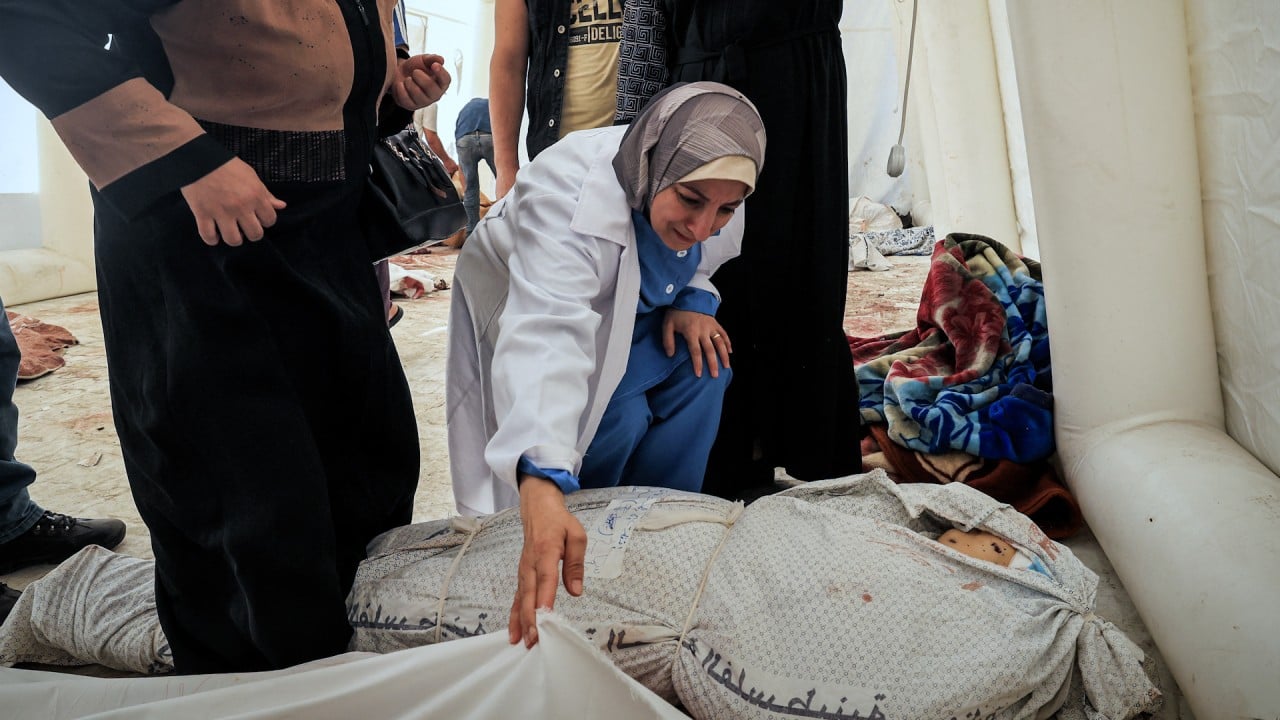They huddled in caves and tunnels. They died by the thousands as government forces battled to exterminate them as terrorists and terrorist sympathisers.
Just who was in charge in Seoul at the time of the outbreak of the slaughter in 1948 was not clear in the aftermath of US forces assuming control over the Korean peninsula south of the 38th parallel after the Japanese surrender on August 15, 1945. However, there is no doubt who is in charge in Israel, and there is no question that the Israeli authorities are in command of the Israeli Defence Forces’ attacks against Hamas.
In response to a request for comment, the US State Department said earlier this month that “the Jeju incident of 1948 was a terrible tragedy, and we should never forget the devastating loss of life”. It was the first the US government stated an official position on the issue, but it did not apologise.
What military support does the US provide to Israel?
What military support does the US provide to Israel?
The ambivalence in the US response to Gaza has echoes of its response to the killings on Jeju. It is true that US forces in South Korea did not order or condone what happened to the people of Jeju. They just failed to get Rhee’s forces to stop it.
The same might be said of the US role in Gaza. Judging from everything he has said so far, Biden appears to be doing all he can to rein in Netanyahu and the Israeli military, but some might say that’s all for show. Just as in Jeju more than seven decades ago as in Gaza now, the sin of omission is tantamount to that of commission.
Donald Kirk is an author and journalist from Washington, DC. His books on Korea include, notably, “Korea Betrayed: Kim Dae Jung and Sunshine”, and “Korean Dynasty: Hyundai and Chung Ju Yung”















